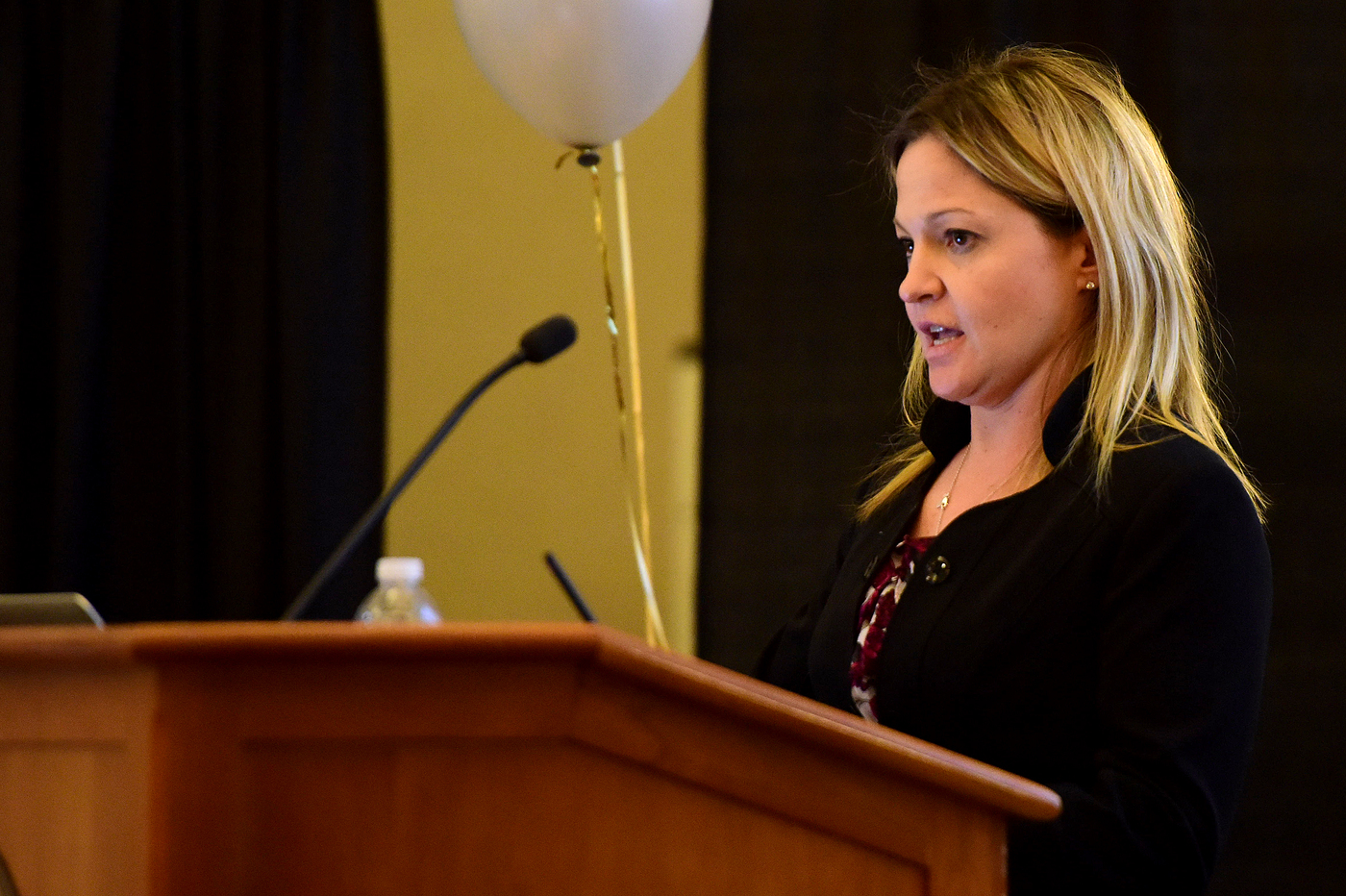Every biology class will tell you that mitochondria, essential intracellular organelles, are the powerhouse of the cell. But Dori Woods, Assistant Professor of Biology, will tell you that mitochondria do much, much more.
Woods studies mitochondrial heterogeneity. Many mitochondria are very different from one another, even within a single cell, from the number of proteins they contain to how they communicate with the nucleus. Working with the mitochondrial genome and the 13 proteins it encodes, her work looks to understand how the nucleus communicates with the mitochondria in order to tell the more than 1000 nuclear encoded mitochondrial proteins what to do. More specifically, she is looking at how different mitochondria within cells are regulated – since one mitochondria could have a completely different protein landscape from another.
Woods has just received a Faculty Early Career Development (CAREER) award from the National Science Foundation (NSF) for her research on the “Regulation of mitochondrial integrity and mitophagy between distinct mitochondrial subpopulations.” Among the NSF’s most prestigious awards, the CAREER mechanism funds early-career stage faculty members who exemplify the role of teacher-scholar. This project, which spans 5 years, will study how mitochondrial subpopulations within cells distinguish from one another, how cells maintain those different mitochondrial subpopulations, and how the intracellular events that coordinate proper mitochondrial function.
The topic of mitochondrial heterogeneity has not been explored in depth because of a lack of technology that allowing researchers to evaluate mitochondria as individual entities within a cell or target tissue. The Woods Lab developed tools to look at mitochondria as individual entities, and can use specialized features and properties of mitochondria to evaluate mitochondrial subpopulations, or on a single organelle basis, giving the lab a much deeper look at how mitochondria work.
Woods will use this technology and her CAREER funding to further her research on mitochondria, centered around mitochondrial synthesis and degradation, while also devoting much of her time to teach these skills to students.
“[The CAREER award] gives me the opportunity to train graduates and co-op students on cutting-edge technology that we’ve created in house,” she said. “We want to engage our undergraduates and give them that experiential opportunity, and now we have the funding to make that happen.”
Over the next five years of work under the award, the Woods lab will work with at least 10 co-op students. Students will be trained on research skills in molecular biology and flow cytometry as they relate to the many projects in the lab.
Woods hopes to be able to study a variety of subtopics under mitochondrial heterogeneity and function, but overall is looking forward to the ability to work with and teach many enthusiastic students.

